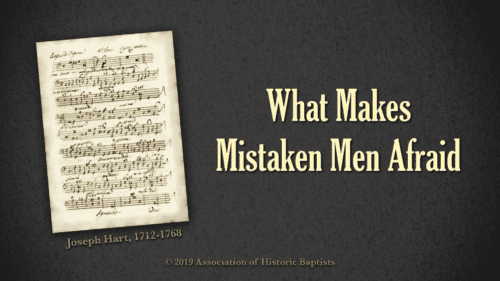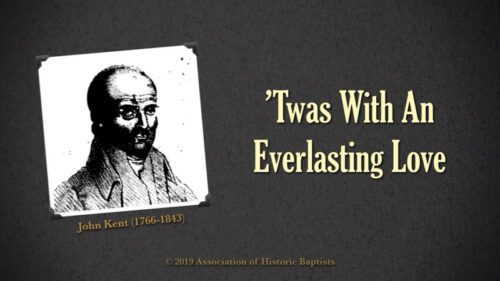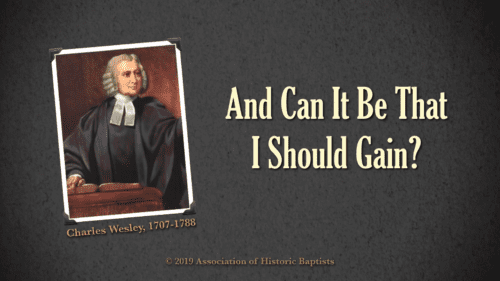-
Study 6: Secret Rebellion (2:17-3:8)
This study examines Paul's challenge to the Jewish people as a nation, as they then existed when his letter to church at Rome was written. He charges them with hypocrisy and ignorance. Hypocrisy, because they were law breakers though they sat in judgment of the Gentiles; Ignorance, because they were law perverters, substituting God's masterplan for the ages with that of their own. An application is drawn from this teaching in the modern context of denominationalism.
-
Study 5: The Laws Of God (2:1-16)
This study explores the differences between the Jews and the Gentiles; between the Covenant of Works and the Mosaic Covenant; between the heart law and the Mosaic Law; between the spiritually elect and the spiritually non-elect.
-
Study 4: Open Rebellion (1:18-32)
This study looks into the depravity of the human heart as it manifests itself in open rebellion against God. The subject is aligned with the Framework of Sovereign Grace, demonstrating where Paul's teachings fit within the masterplan of God for the ages.
-
Study 3: Open And Secret Rebellion (1:18-3:18)
This study considers the first main section of Paul's letter to the church at Rome. In his answer to the question, Why are sinners under the condemnation of God, the apostle distinguishes between the Jews and the Gentiles, showing why both groups are under God's wrath. Jared explains the reason for Paul distinguishing the Jews from the Gentiles, and places the whole of Paul's teachings into the context of the Framework of Sovereign Grace.
-
Study 2: Greetings, Brethren (1:1-17)
This study considers the introduction of Paul's letter to the church at Rome. The first seventeen verses of chapter one are examined in light of the Framework of Sovereign Grace.
-
Behold The Potter And The Clay
Romans 9:19-24: "Thou wilt say then unto me, Why doth he yet find fault? For who hath resisted his will? Nay but, O man, who art thou that repliest against God? Shall the thing formed say to him that formed it, Why hast thou made me thus? Hath not the potter power over the clay, of the same lump to make one vessel unto honour, and another unto dishonour? What if God, willing to shew his wrath, and to make his power known, endured with much longsuffering the vessels of wrath fitted to destruction: and that he might make known the riches of his glory on the vessels of mercy, which he had afore prepared unto glory, even us, whom he hath called, not of the…




